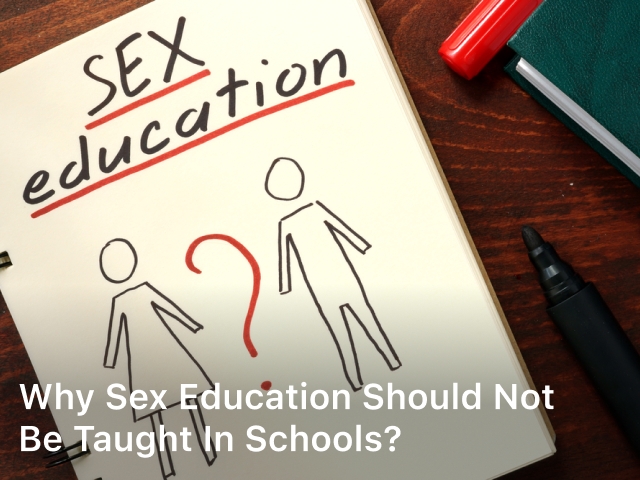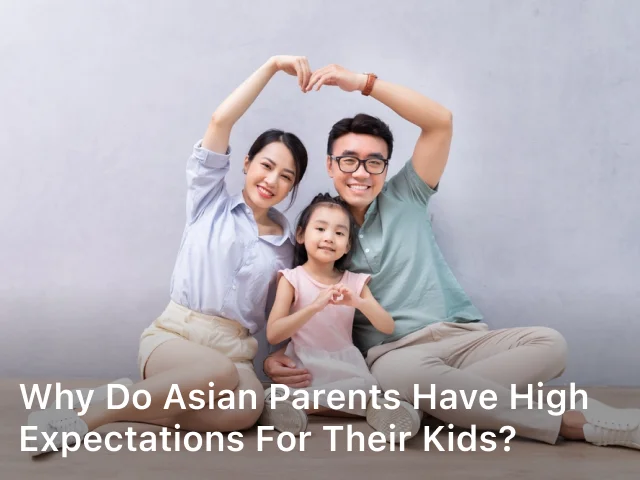Why Sex Education should not be Taught in Schools?

fitguideguru.com. Why Sex Education should not be Taught in Schools? – Discover why many believe that sex education should not be taught in schools. Explore various perspectives, FAQs, and expert insights on this controversial topic.
Sex education in schools has long been a contentious issue, with passionate arguments on both sides of the debate. The question of whether or not sex education should be taught in schools is a topic that deserves careful consideration. In this article, we will delve deep into this subject, examining multiple angles, addressing FAQs, and providing expert insights.
Why Sex Education should not be Taught in Schools?
Sex education has been a subject of debate for decades. Many argue that it should not be taught in schools due to various concerns. Let’s explore some of the primary reasons behind this perspective.
The Role of Parents
Parents often believe that they should be the primary educators on sensitive topics like sex. They argue that discussing these matters in schools undermines their authority and responsibility to educate their children about such intimate subjects.
Age-Appropriateness
Critics argue that sex education programs might not always cater to the age-appropriateness of students. They contend that discussing explicit topics with young children may be emotionally and psychologically harmful.

Cultural and Religious Differences
Sex education curricula may not align with the values and beliefs of all families. Cultural and religious differences can lead to clashes and discomfort among students and their families.
Privacy Concerns
Some parents express concerns about the invasion of their child’s privacy when explicit topics are discussed in a school setting. They believe these conversations should happen within the confines of the family home.
Moral and Ethical Concerns
Opponents of sex education in schools often cite moral and ethical objections, believing that discussing certain aspects of sex may promote behaviors they deem inappropriate or immoral.
Lack of Qualified Instructors
Critics also question the qualifications of instructors delivering sex education. They worry that inadequately trained teachers may not handle these sensitive topics appropriately.
Comprehensive Sex Education vs. Abstinence-Only Education
One of the key debates within the realm of sex education is whether to provide comprehensive sex education or promote abstinence-only education. Let’s explore both approaches.
Comprehensive Sex Education
Comprehensive sex education covers a wide range of topics, including reproductive health, contraception, and healthy relationships. Proponents argue that it equips students with the knowledge and skills to make informed decisions about their sexual health.
Abstinence-Only Education
Abstinence-only education promotes refraining from sexual activity until marriage. Supporters believe that this approach aligns with certain moral and religious values and reduces the risks associated with premarital sex.
The Importance of Inclusivity
Advocates of sex education in schools emphasize the importance of inclusivity in curriculum design. They argue that sex education should be LGBTQ+ inclusive, ensuring that all students receive accurate information regardless of their sexual orientation or gender identity.
FAQs
Is sex education mandatory in all schools?
Sex education policies vary by location. Some regions mandate it, while others leave it to the discretion of individual schools or districts.
Can parents opt their children out of sex education classes?
In many places, parents can opt their children out of sex education classes if they have objections to the content. Check your local policies for specific details.
Does sex education lead to earlier sexual activity?
Research on this topic is mixed, with some studies suggesting that comprehensive sex education does not lead to earlier sexual activity. It’s essential to base conclusions on credible research.
What is the best age to start sex education?
The appropriate age for sex education can vary from child to child. Some experts recommend introducing basic concepts at an early age and gradually providing more detailed information as children grow older.
How can parents supplement sex education at home?
Parents can supplement sex education at home by fostering open communication, answering questions honestly, and providing age-appropriate resources, such as books and websites.
Are there any benefits to sex education in schools?
Proponents argue that sex education in schools can lead to reduced rates of teenage pregnancy, lower rates of sexually transmitted infections, and better-informed decision-making about sexual health.
Conclusion
The debate over whether sex education should be taught in schools is complex and multifaceted. It encompasses issues of parental authority, age-appropriateness, cultural and religious diversity, and ethical concerns.
As society evolves, so too does the conversation around sex education. Ultimately, the decision should be made with careful consideration of the needs and values of the community. Sex education, if taught, should be inclusive, comprehensive, and delivered by qualified instructors who prioritize the well-being of students.
Keep Reading : How Healthy Meals Help Kids Learn Act





